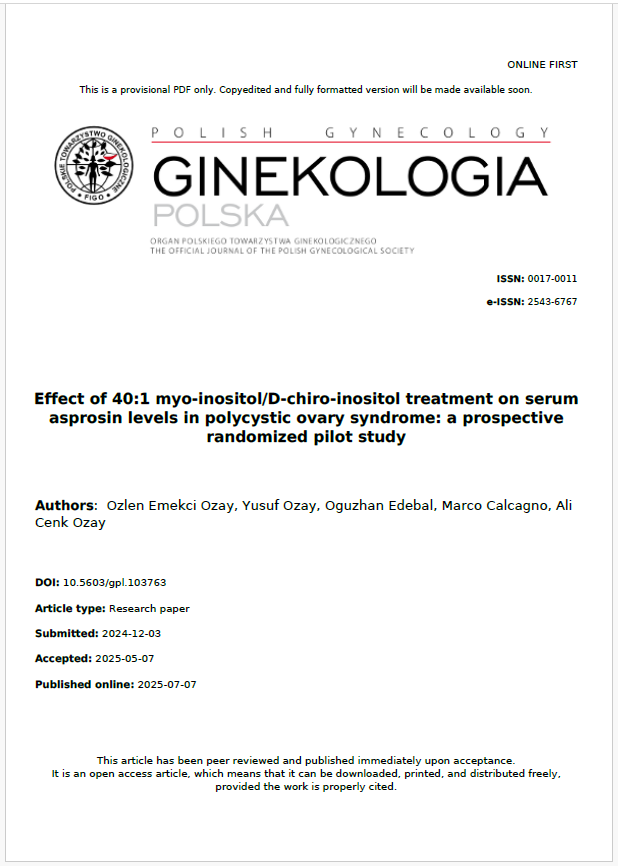Authors:
Ozay OE, Ozay Y, Edebal O, Calcagno M, Ozay AC.
Abstract
Objectives: Asprosin, a novel adipokine primarily secreted by white adipose tissue, has been implicated in the pathogenesis of insulin resistance and metabolic dysfunction. Its elevated levels characterize patients with polycystic ovary syndrome (PCOS) exhibiting metabolic alterations. Aim of this work was to evaluate the effects of insulin sensitizer administration, as inositols, on asprosin levels and then compare these results with the effects of metformin treatment.
Material and methods: 30 patients with PCOS were enrolled in this study and randomly divided into two groups: (i) group 1 assumed a dietary supplement based on 40:1 myo-inositol (MI)/D-chiro-inositol (DCI), (ii) group 2 assumed metformin (MET), for 12-16 weeks of treatment.
Results: The reduction of serum asprosin levels in patients with PCOS after treatment with MET and MI/DCI is the most intriguing result. Its levels decreased more in the inositol group, although they did not reach statistical significance probably due to the lower number of patients.
Conclusions: The observed dysregulation of asprosin levels in PCOS highlights a potential link between this novel adipokine and the pathophysiology of the disorder, suggesting a modulatory effect of the combined 40:1 MI/DCI on asprosin levels. Of course, further studies may contribute to disclosing molecular mechanisms underlying asprosin reduction and open toward new perspectives.

